Comedy Connections - Season 6

Season 6
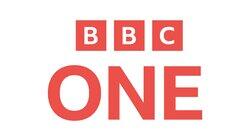
Episodes
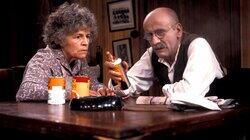
Till Death Do Us Part
The series charting the history of the best of British comedy returns for a sixth series by taking a look at Till Death Do Us Part, which burst onto screens in June 1966. The sitcom was the most controversial, offensive and original programme of its time with the foul-mouthed, East London bigot, Alf Garnett, becoming one of Britain's greatest comedy characters. Comedy Connections reveals how Peter Sellers was the original choice to play Alf, lifts the lid on the simmering tensions between actors Warren Mitchell and Tony Booth, and discusses the language and racial attitudes displayed by Alf Garnett.
Till Death Do Us Part courted controversy from the outset and became the bete noir of Mary Whitehouse's Viewers and Listeners Association, which complained, not about the show's racist language, but the use of the word 'bloody'. Despite this, family Garnett were fought over by the BBC and ITV, appearing at various points on both networks for nearly 40 years.
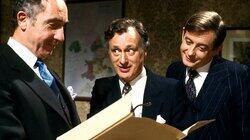
Yes, Minister
The series charting the history of the best of British comedy looks at Yes, Minister and follow-up Yes, Prime Minister, which charted the rise of an unlikely Prime Minister and achieved massive success over five series.
Written by Jonathan Lynn and Antony Jay, the satire captured the public imagination by revealing the behind-the-scenes wheeling and dealing of Westminster. Aided and abetted by secret informers who had sat right at the heart of government, Jay and Lynn created a civil service comedy that still rings true today and made stars of Nigel Hawthorne, Derek Fowlds and Paul Eddington.
Comedy Connections reveals that when Antony Jay first spoke to Jonathan Lynn about the idea, Lynn thought it was boring and turned it down, that the BBC's Head of Comedy had to bully Paul Eddington into taking the part of Jim Hacker, and the considerable political differences between the show's writers.
Also, how the 1979 election delayed the show's debut, the effect of being told that he was to become Prime Minister had on Paul Eddington, and why Antony Jay got his knighthood.
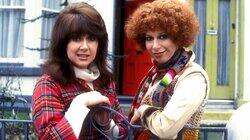
The Liver Birds
Series charting the history of the best of British comedy. A look at The Liver Birds, a groundbreaking sitcom centred around the lives of two young Liverpudlian women.
Not only was it one of the earliest successful shows to be written by and starring women, it also survived the loss of two central characters and was so well loved in the 1970s that it returned for a controversial reunion in the 80s.
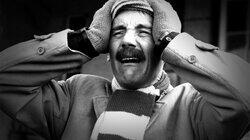
Ripping Yarns
The series charting the history of the best of British comedy investigates Michael Palin and Terry Jones's post-Python parody of pre-war Boys' Own adventure comics, which captured the decline of the British Empire at a time when punk rock offered Anarchy in the UK and the country was facing political unrest.
Ripping Yarns is a neglected gem amongst the many jewels proffered by the genius talents of Jones and Palin - the story of the series having a bittersweet ending, the break-up of their decade-long writing partnership, but also the birth of two incredibly successful solo careers.
Comedy Connections uncovers the fact that the BBC actually wanted a variety show from Michael Palin, but it evolved into Ripping Yarns and how hurt Michael Palin felt when director Terry Hughes took a promotion inside the BBC and left the programme. Terry Jones reveals his regret that Michael Palin only played the straight man parts, and how the ambition of the series - to be like little films - would eventually lead to its downfall, costs leading to the programme being abandoned half-way through the second series.

Rab C Nesbitt
Series charting the history of the best of British comedy. A look at Rab C Nesbitt, the sitcom about the life of a working-class Glaswegian, which ran for thirteen years and survived the death of a cast member to win audiences of five million viewers.
The programme reveals how the series was born out of a string of happy accidents, how it thrived despite its main star initially not wanting the role, how some Glaswegians struggled to accept the character and what a burden the character and resultant fame became for the star, Gregor Fisher. We also find out just where the 'C' came from in the eponymous character's name.
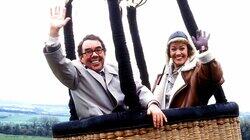
Sorry!
Series charting the history of the best of British comedy looks at Sorry!, the sitcom which ran from 1981-1988 and starred Ronnie Corbett as a middle-aged librarian who still lived at home with his domineering mother.
Corbett's character, Timothy Lumsden, not only tickled the nation's funny bones but also went on to influence a generation of younger comedians, such as Frank Skinner and Harry Hill. The writing team of Ian Davidson and Peter Vincent - who had also written for The Two Ronnies and Dave Allen - were adept at mixing comedy and drama, something few sitcoms were so successful at.
Comedy Connections reveals how Ronnie Corbett sought the opinion of comedy partner Ronnie Barker before committing to the project, how the writers knew they could take advantage of their star's diminutive size, quite how often Mother used to slap Timothy and that Timothy had a happy ending because the show's producer insisted on it before the start of the final series.
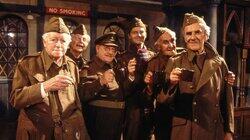
Dad's Army
Set in wartime Britain, the cast of Dad's Army featured many veterans of stage and screen including Arthur Lowe, John Laurie and Arnold Ridley. As well as creating a template for future ensemble sitcoms, the series established one of British TV's most successful writing partnership - that of Jimmy Perry and David Croft.
But Comedy Connections reveals that neither writer gave Dad's Army its name. Originally called Fighting Tigers, the new title was imposed on the show by the BBC's then Head of Comedy, Michael Mills. Other surprises include John Laurie expressing his disappointment that, at the age of 73 and after a glittering theatre career, he should become most famous for 'this crap', what happened when Ian Lavender asked the show's writers whether his character, Pike, was in fact Wilson's son, and what producer David Croft did with the audience feedback report after the screening of the show's pilot.
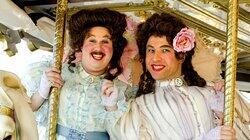
Little Britain
Series charting the history of the best of British comedy looks at Little Britain. The bright and bizarre comedy sketch show burst out of radio and onto television screens in February 2003, making international stars of its writers and performers Matt Lucas and David Walliams.
Little Britain was a candy-coloured confection of some of the most twisted, absurd, malevolent, yet somehow adorable comedy characters ever created. It became a worldwide phenomenon which defined the country at the start of the 21st century - whether the country liked it or not. But what did Little Britain tell us about life in this sceptic isle?
The programme reveals how several friends in high places helped bring Little Britain to television and how discussions of Martin Parr's social realist photographs played their part in setting the visual style of the series.
Recently Updated Shows
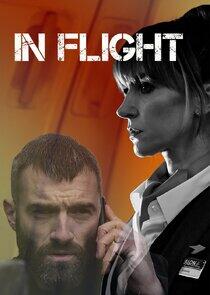
In Flight
Jo Conran is a single mum working as a flight attendant. Her son is serving a fifteen-year sentence in a Bulgarian prison for a murder he swears he did not commit. Jo is approached by a gang who know all about her son and is blackmailed into using her job to smuggle drugs. She soon finds herself pulled into a murky underworld of corrupt cops and hired killers, forced to carry out their orders with no escape in sight. However, no matter how far Jo finds herself from her old life, her mission remains the same, to keep her son alive.
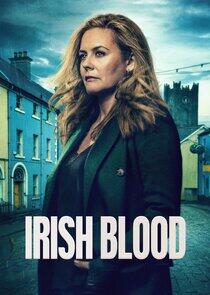
Irish Blood
Irish Blood focuses on Fiona, whose path in life is earmarked by her father, Declan, who seemingly abandoned her and her mother on her tenth birthday. After years of channelling anger toward him, to the benefit of her litigious clients, a message from her father sends her to Ireland. There she learns key truths about her father as well as a family that doesn't know she exists, and, moreover, that the story of abandonment that has shaped her entire life - was a lie. A lie intended to protect her and her mother from her father's shady business dealings. Fiona resolves to uncover the full truth about her father and reconnect with the parent she only thought she knew.

Beyond the Gates
Beyond the Gates is set in a leafy Maryland suburb just outside of Washington D.C., and in one the most affluent African American counties in the United States. Here you'll find a posh gated community with winding tree-lined streets and luxurious mansions to call home. At the center of this community are the Duprees, a powerful and prestigious multi-generational family that is the very definition of Black royalty. But behind these pristine walls and lush, manicured gardens are juicy secrets and scandals waiting to be uncovered. And those that live outside these gates are watching closely. These are the places where our characters live, love, work and play. Those who have "made it" and those who haven't are all trying to navigate life … and some with more grace than others.

The Walking Dead: Dead City
The Walking Dead: Dead City envisions the popular Maggie and Negan characters travelling into a post-apocalyptic Manhattan long ago cut off from the mainland. The crumbling city is filled with the dead and denizens who have made New York City their own world full of anarchy, danger, beauty, and terror.
